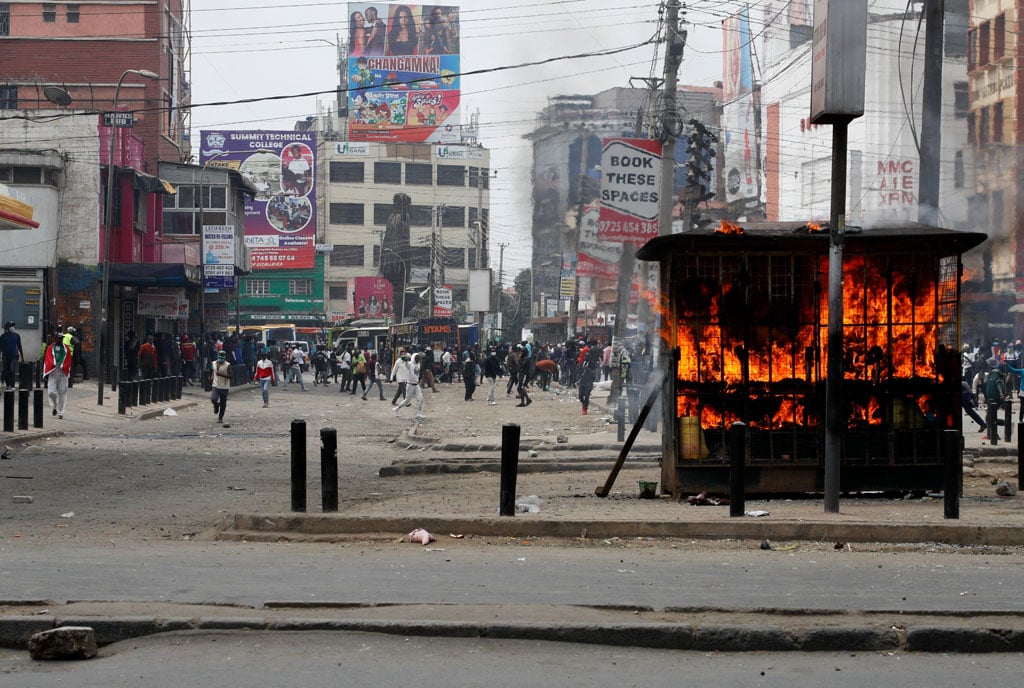Prime
World Environment Day 2024; from rhetoric to concrete action now

What you need to know:
In the first place, land degradation affects nearly two billion hectares of land worldwide and is therefore a priority issue across the globe, as manifest in the Action Plan for the UN Decade on Ecosystem Restoration (2021-2030)
The World Environment Day, inaugurated by the United Nations in 1972 and first celebrated on June 5, 1973, serves as a global vehicle for raising awareness and promoting action for the protection of the Environment. As the world continues to commemorate the World Environment Day 2024, the clarion call to action reverberates louder than ever, under the theme “Our Land. Our Future. We are #GenerationRestoration.” This year’s rather timely focus on land restoration, desertification, and drought resilience underscores some of the most critical environmental challenges of our day and the imperative for concrete collective action.
In the first place, land degradation affects nearly two billion hectares of land worldwide and is therefore a priority issue across the globe, as manifest in the Action Plan for the UN Decade on Ecosystem Restoration (2021-2030). It manifests through deforestation, soil erosion, loss of biodiversity, and the encroaching threat of desertification especially in the arid and semi-arid areas.
Desertification, the process by which fertile land becomes desert primarily as a result of drought, deforestation, or inappropriate agricultural practices, poses an acute threat to food security and livelihoods. According to the United Nations Environment Programme, desertification affects around 3.2 billion people across the globe. These rather stark statistics accentuate the necessity of immediate and concerted action to push back on this global challenge.
Drought resilience is another focal area for this year’s discourse. With climate change exacerbating the frequency and severity of droughts, millions of people face water scarcity, reduced agricultural productivity, and heightened poverty, globally. The impacts are particularly devastating in regions dependent on rain-fed agriculture, making resilience strategies crucial for survival and stability.
Efforts to combat these challenges are multifaceted and they encapsulate policy reforms, community engagement, and innovative technologies. A remarkable initiative under the #GenerationRestoration banner is the African Great Green Wall. This ambitious project aims to restore 100 million hectares of land across the Sahel region by 2030, creating a mosaic of green and productive landscapes. The initiative not only addresses desertification, but also promises socio-economic returns to wit, job creation and enhancement of food security in Africa.
In Uganda, the commemoration is championed primarily by the National Environment Management Authority (NEMA) and is slated to take place in Sironko District. Our national theme, “Land Restoration for Climate Resilience,” underscores the pressing need to restore land for climate resilience, human well-being, wealth creation, job opportunities, and sustainable socio-economic transformation. This theme is in pristine consonance with the Government’s Ten-Year Plan of Action for Restoration of the Environment and Natural Resources in Uganda (2021-2031), the Uganda Vision 2040, and the National Development Plan III.
It should be noted that local communities, who are at the very forefront of environmental-related disasters play a crucial role in environmental conservation, protection and restoration. Indigenous knowledge, combined with modern science, offers innovative solutions to some of the most critical environmental challenges of our day. Agroforestry, sustainable grazing practices, and community-led reforestation projects are some of the ways communities can contribute to eco-systems restoration.
While significant strides have been made, the path ahead demands unwavering commitment. Government actors, civil society, development partners, academia, the private sector and individuals must unite and rally behind the cause of the Environment. Special focus should be directed towards buttressing the implementation of policy frameworks, increasing funding for restoration projects and conscientious awareness campaigns to educate and mobilize the masses.
World Environment Day 2024 is a timely reminder that our future is inextricably intertwined with the health of our land. As we strive to build a resilient planet, embracing the ethos of restoration is not just an environmental imperative, but a socio-economic exigency. Let us rise to the challenge and be the generation that restores our planet!
Howard Mwesigwa, Speaker – National Environment Parliament.




